Why are some disposable gloves more expensive?
24 September 2025
When shopping for disposable gloves, it’s tempting to think they’re all the same — but prices can vary a lot. So why do some gloves cost more than others? And are premium gloves really worth paying extra for?
Here’s what you need to know before you buy.
- Glove Material Matters Most
The biggest factor in glove pricing is the material. Each type has different strengths, weaknesses, and costs:
- Vinyl gloves – the most budget-friendly option. Perfect for quick, low-risk tasks like food handling, cleaning, or nappy changes.
- Latex gloves – valued for their flexibility and close fit, making them ideal for precision work. The downside? Some users suffer latex allergies.
- Nitrile gloves – more expensive but offer superior protection against chemicals, oils, and punctures. They’re also allergy-safe and highly durable.
Tip: If you need strength, dexterity, and protection, nitrile is worth the investment.
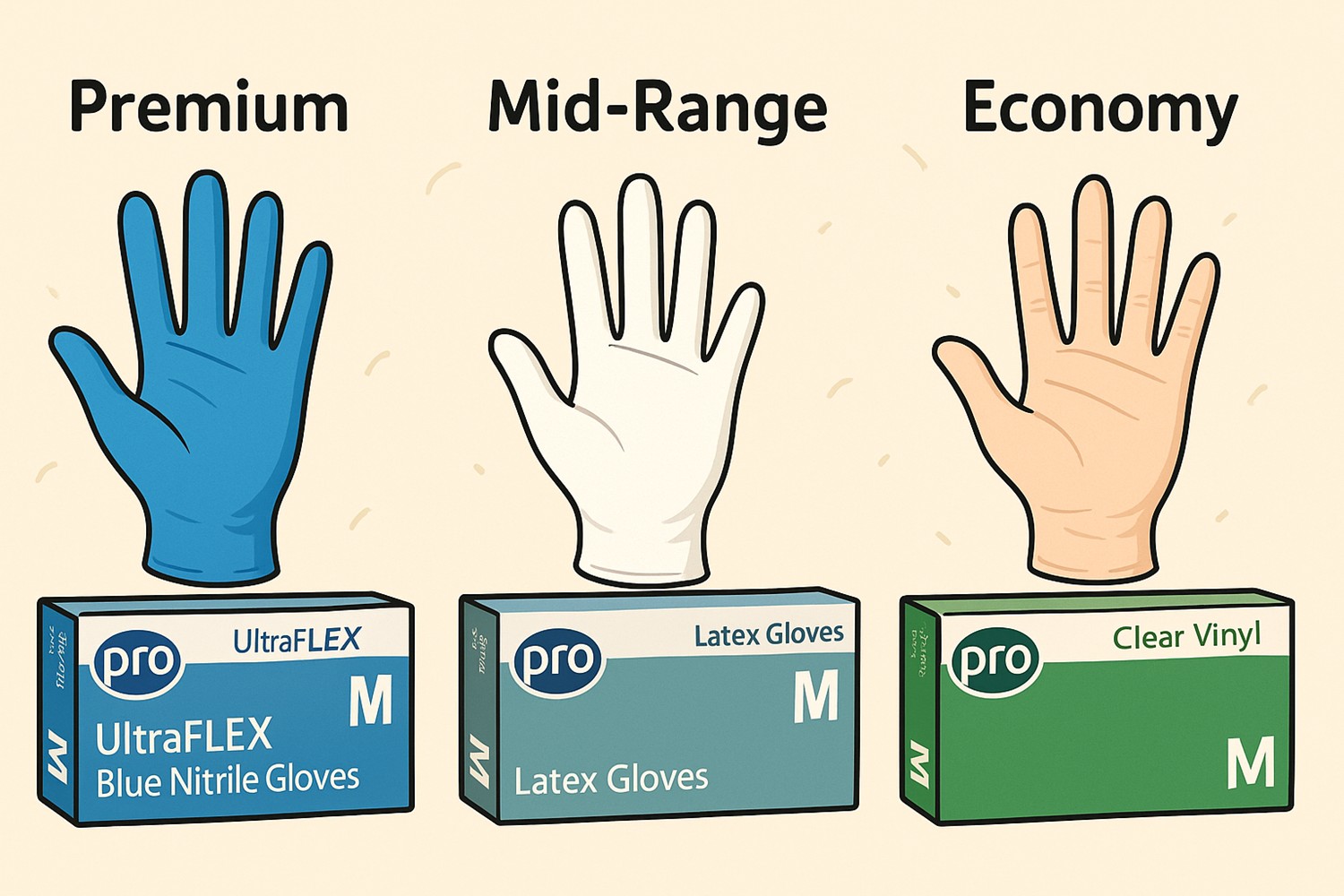
- Thickness Isn’t Everything
It’s easy to assume thicker gloves = better gloves. While thicker gloves do:
- Resist tearing under strain
- Perform better for heavy-duty tasks
- Offer increased chemical protection
…it’s not the full story.
Some gloves, like our PRO UltraTOUCH Nitrile Gloves, are thin and flexible while still incredibly strong. That makes them ideal for jobs where both protection and dexterity are essential — such as tattooing, mechanics, or precision cleaning.
- Fit, Feel & Finish
Higher-quality gloves are designed for comfort and usability, not just protection. Look for features like:
- Textured fingertips for secure grip
- Powder-free finish to avoid irritation
- Beaded cuffs for easier donning and removal
- Consistent sizing that doesn’t vary box to box
Our PRO Nitrile Gloves are AQL 1.5 rated, meaning they pass strict pinhole testing. That’s why professionals who wear gloves for hours - from healthcare staff to cleaners - rely on them daily.
- Certified Safety Standards
Not all gloves meet the same regulations. Cheap imports may skip essential testing for:
- Food safety
- Medical/clinical use
- Chemical resistance
At Hygiene Depot, every glove in our PRO range is clearly certified, so you can buy with confidence:
- PRO UltraTOUCH & UltraSAFE Nitrile Gloves – PPE Category III (highest protection, suitable for medical, industrial, and high-risk use).
- PRO Blue Nitrile Gloves – PPE Category I (perfect for light to medium protection tasks and a great all-rounder).
Buying certified gloves means buying peace of mind.
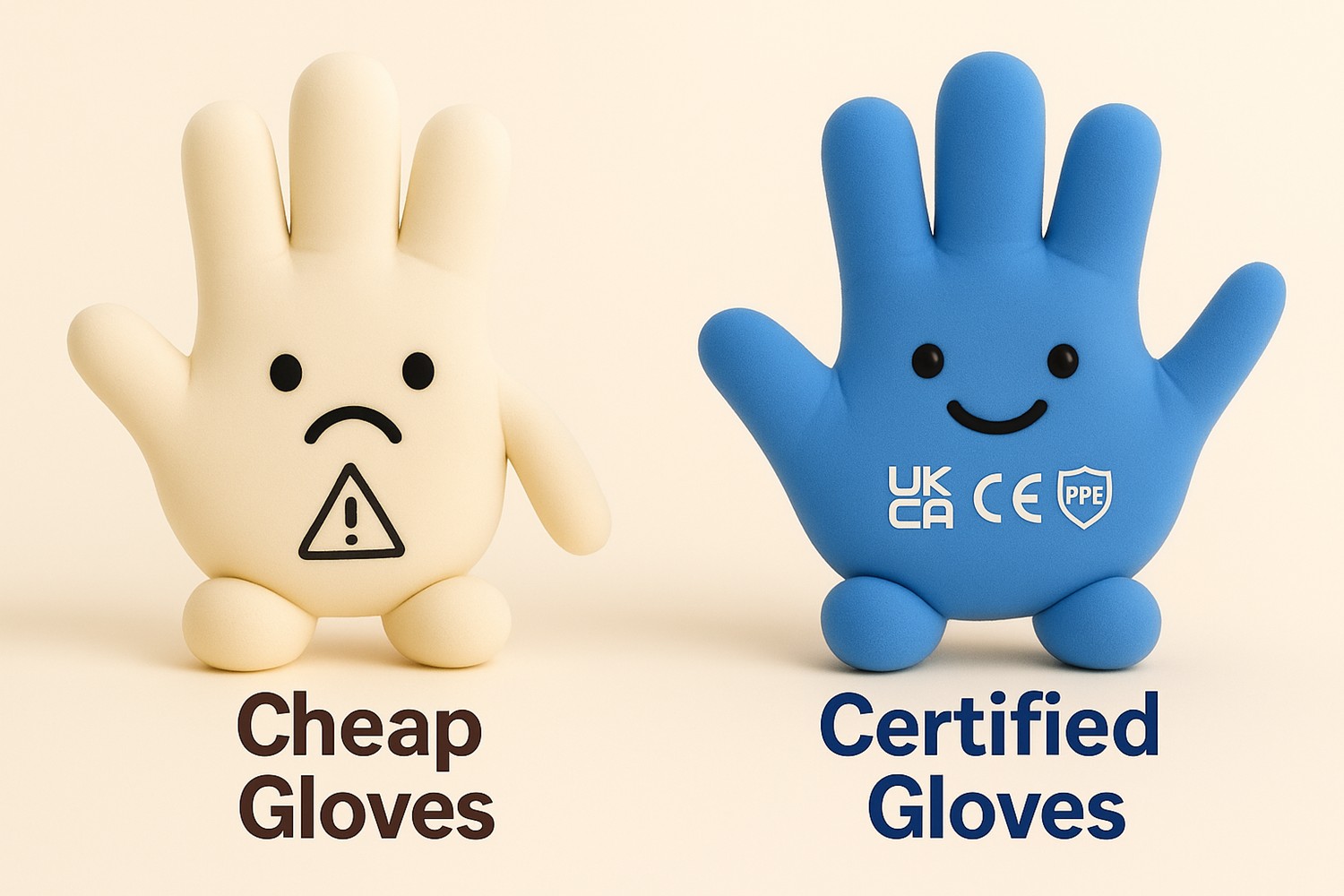
- Prices Fluctuate
Glove prices don’t just depend on quality. They’re also affected by:
- Raw material costs (vinyl, latex, nitrile compounds)
- Global demand (especially in healthcare and food production)
- Shipping rates and supply chain pressures
We continually monitor these factors to keep our pricing competitive while never compromising on standards.
- Not All Retailers Are Equal
Some “cheap” gloves can be a false economy. Issues we’ve seen include:
- Splitting mid-task
- Inconsistent sizes or colours
- No visible certifications
- Poor factory quality control
That’s why our PRO brand is carefully curated — trusted by UK professionals for reliability, value, and safety.
Quick Comparison: Low Cost vs Higher Cost Gloves
|
Low-Cost Gloves |
Higher-Cost Gloves (e.g. PRO) |
|
Basic protection only |
Enhanced durability & grip |
|
Thin & inconsistent |
Reliable performance, thick or thin |
|
Often uncertified |
EN-tested & PPE-rated |
|
Frequent replacements |
Longer lasting = better value |
Still Not Sure Which Gloves Are Right for You?
We understand — with so many choices, it can be tricky. That’s why we’ve built the PRO glove range to cover every need, without overspending.
✅ Trusted across healthcare, cleaning, food production & industry
✅ UK-based support & expert advice
✅ Free delivery on orders over £75
✅ Fast dispatch from stock
Browse the full PRO glove range or contact our team today for tailored advice.
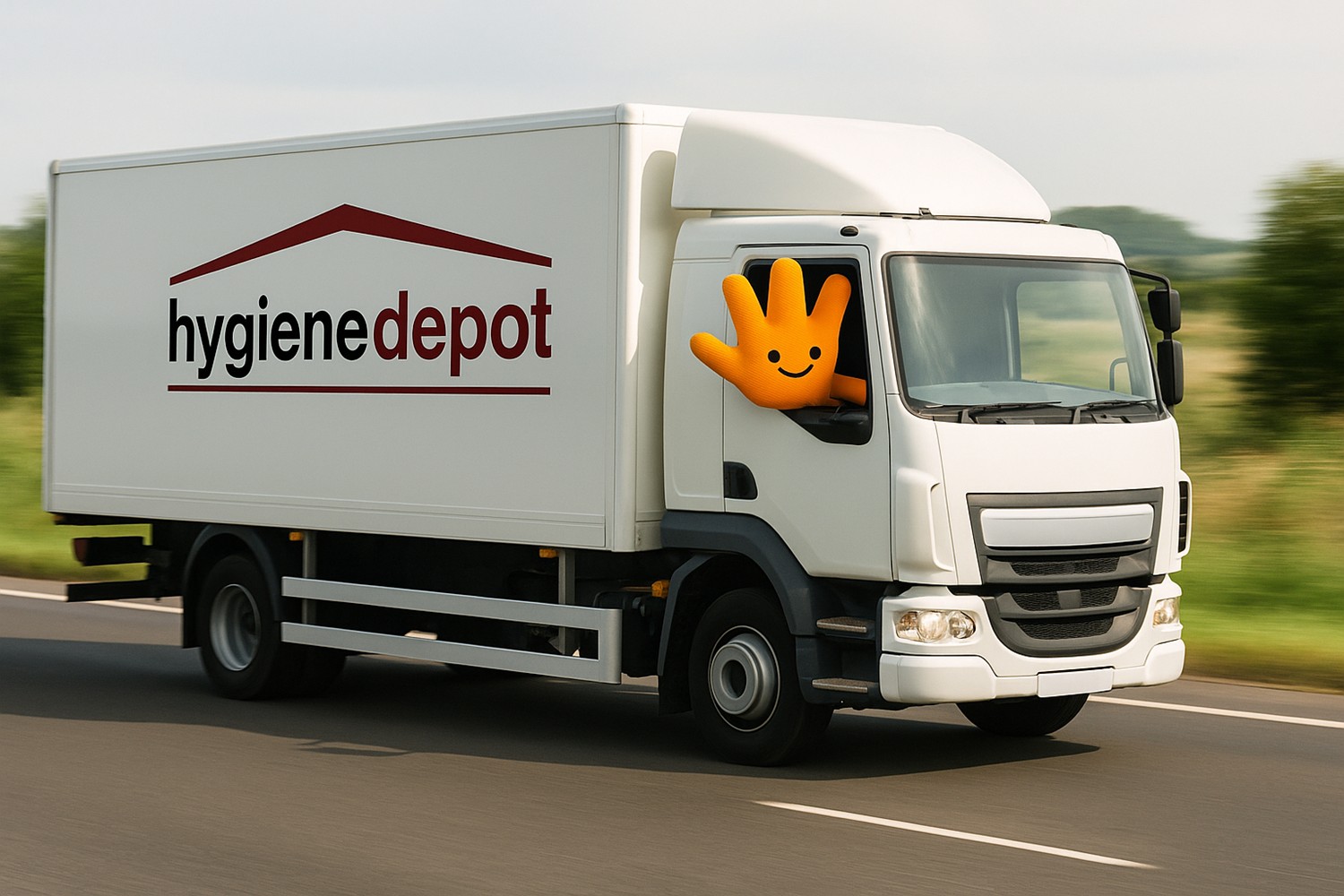
Frequently Asked Questions About Disposable Glove Prices
Why are nitrile gloves more expensive than vinyl or latex?
Nitrile is a synthetic material that offers superior chemical, oil, and puncture resistance, which makes it costlier to produce. You’re paying for greater protection, durability, and allergy-safe use compared to cheaper vinyl or latex options.
Are cheap disposable gloves safe to use?
Not always. Some low-cost gloves can be uncertified, inconsistent in size, or prone to tearing. Always check that gloves meet EN standards and are PPE rated for your intended task. At Hygiene Depot, even our economy gloves meet minimum safety requirements.
What are the best disposable gloves for food handling?
Vinyl gloves are the most budget-friendly choice for low-risk food prep. For tasks involving oils, strong flavours, or longer wear, nitrile gloves provide better grip and protection. All gloves in our catering range are clearly certified for kitchen and catering use.
Do thicker gloves last longer?
Yes - but thickness isn’t everything. Some gloves, like PRO UltraTOUCH Nitrile Gloves, are thin and flexible yet still highly durable. Always match the glove to the job: heavier-duty tasks may need thicker nitrile – such as industrial, farming and laboratory use, while precision work benefits from thinner, dexterous and sensitive gloves – like dentists, doctors, beauty salons.
How can I save money on disposable gloves without losing quality?
- Buy full cases to reduce delivery costs
- Match glove type to task (vinyl for light use, nitrile for heavy use)
- Choose a trusted supplier like Hygiene Depot for certified products that reduce waste from splitting.
Still not sure? Explore our full PRO glove range or contact our expert UK team for tailored advice.
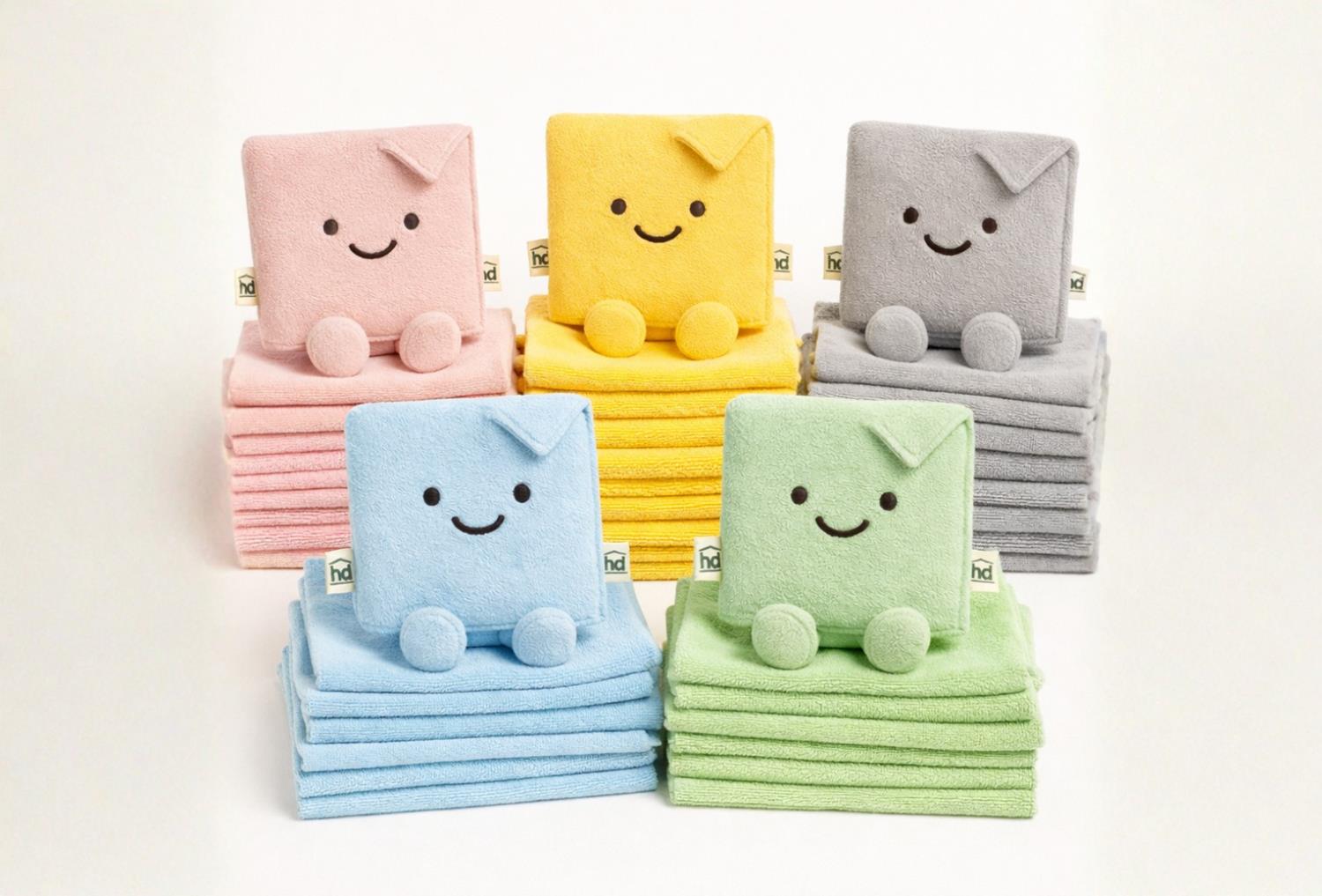
How can I get the most out of my microfibre cloths? 2 February 2026

How sustainable are disposable paper products? 11 November 2025

Why is Hygiene Depot expanding into Pet Care? 11 November 2025
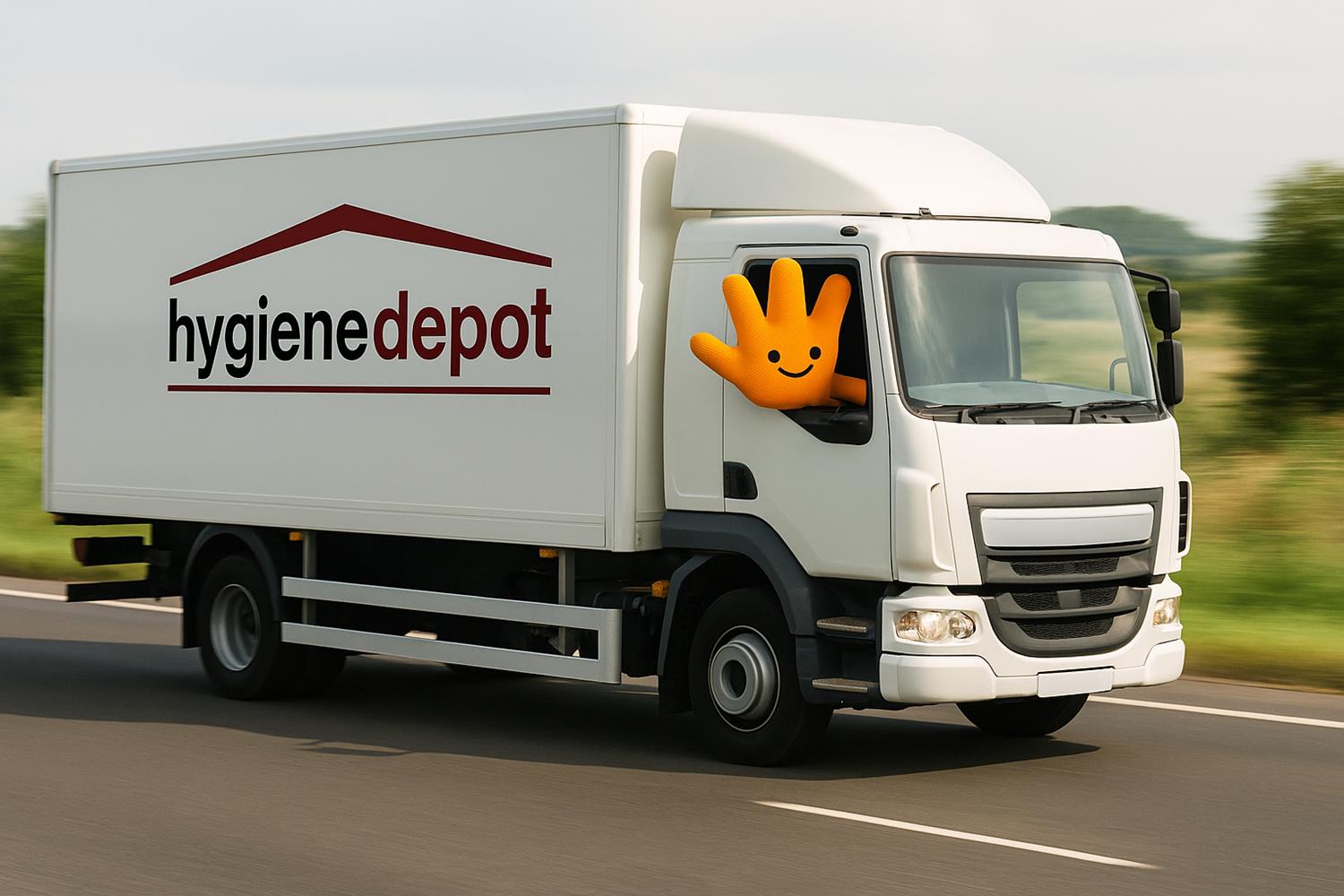
Why do I have to pay for delivery? 5 November 2025
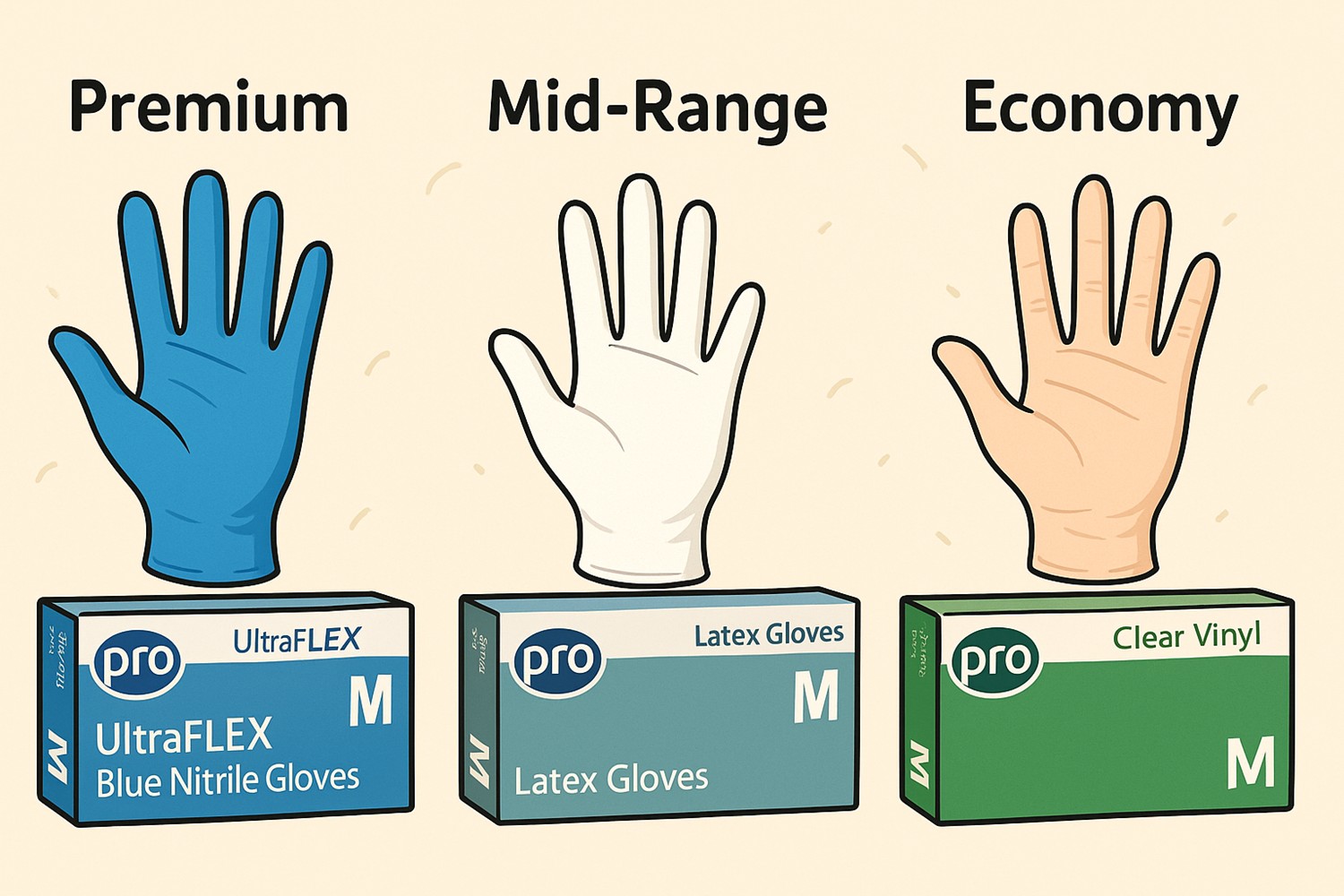
How to cut costs on hygiene & cleaning supplies (without sacrificing quality)? 24 September 2025